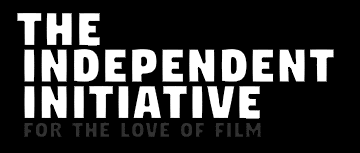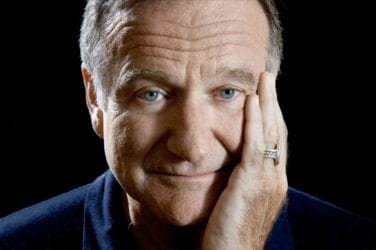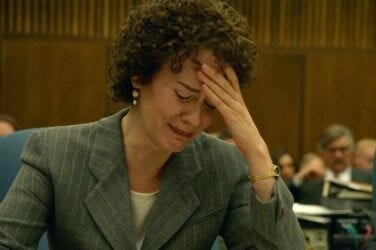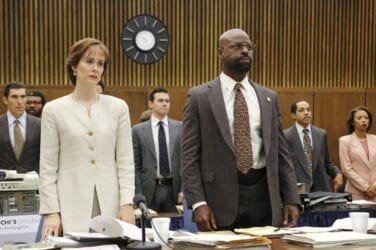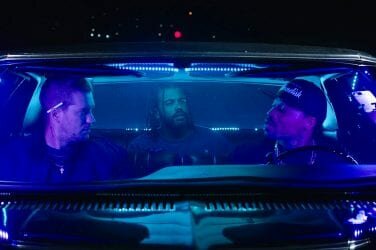Christopher Nolan’s WWII epic, Dunkirk – a film surely destined to be one of the most popular movies of the year, gave me chills. The main trailer for this film (below) not only did that, but had me on the verge of tears.
Why did the trailer move me so much?
First of all, the great filming, music and editing – we all know Nolan is a great director, and cuts excellent movie trailers. But it was much more than this.
As a Brit, and student of history, I’m familiar with the story the movie is based around, the miracle of Dunkirk, the danger the soldiers were in, what was at stake. When you combine this with Christopher Nolan’s genius, the realism of the trailer/film, I suddenly felt I was a spectator to actual history. I felt a glimmer of the fear, the desperation, the terror, these young men on the beaches of Dunkirk must have felt. And a certain pride in my own fellow Britons, for how we found such hope in the depths of despair, and never, ever gave in. The ‘never surrender’ part of the trailer, quoting Churchill himself, was the most emotive part.
And this brings me to my point.
I like to watch ‘trailer reactions’ on YouTube, which are largely made by Americans in their mid-late twenties. People who’ve grown up with a bunch of World War II movies, which are all about America’s role in the war. Pearl Harbour, Saving Private Ryan and the Band Of Brothers TV show, are stories about American soldiers, telling their story of WWII.
And it was telling, watching their reactions to the Dunkirk trailer. Many of them weren’t even sure it was a historical event.One in particular, a viewer says “Is this a true story?”.
The irony is, the story of Dunkirk was probably the turning point of the war. If the British had failed at Dunkirk, the chances are Britain would have been conquered by the Nazis – and the result of the war could have been very different.
The recovery of over 300,000 men from Dunkirk, when only 20,000 survivors at most were expected, felt like a victory. It united Britain and gave us hope, belief, and strength to keep going.
Yet the last big Hollywood movie about Dunkirk was over 40 years ago. If you learn your history from recent Hollywood movies, you’d think it would never have happened, the war was won solely by Americans, the British did nothing and had no story to tell.
This should concern us.
Hollywood does seem to have an annoying habit of rewriting or airbrushing history. Indeed, there’s a scene in the Doctor Who special, ‘Day Of The Doctor’, when at the offices of security organisation UNIT, they find a time vortex manipulator with the ability to change history. And the head of UNIT, a character called Kate Lethbridge-Stewart, says
“Think about it: Americans with the ability to rewrite history? You’ve seen their movies… “
It was a telling comment, and many people smiled, because it hinted at something we all – including Americans – know to be true. Hollywood likes to rewrite history.
And that’s not a slight on America, or even on Hollywood – it’s something we all know happens. It happens in biopics, it happens with many stories based on true stories. Think about how many movies are now trailed as ‘Based on True Events’.
There was a time that phrase meant something. Now we know this means filmmakers took something true and added and changed things to make a good story. Because for Hollywood it’s less about historical accuracy, as telling a good story – and making the right people the heroes.
Argo, the Oscar winning movie about the rescue of American hostages from Tehran, was shown to have flagrant historical inaccuracies, misleading and misrepresenting the role of the British and Canadian embassies, whilst exaggerating the danger to the Americans.
Pearl Harbour didn’t show or allude to many historical characters involved, and again, slightly altered exact details about the events.
The reason – getting a good story – is an honourable one in many ways. For people to stay with a movie, to give it their full attention, for a movie to resonate and connect, we need to have good story.
But I’d argue the best stories from history, in many ways, tell themselves. The best filmmakers will give the audience a route into the story, a way to connect with the story – without taking away from the essential truth of it.
The hope I have with Dunkirk comes from it’s director. Christopher Nolan is a stickler for detail. He’ll have studied the story of Dunkirk in detail, he doesn’t put anything on film which there’s not historical evidence for or is in any way inaccurate. He even filmed in Dunkirk, on the same beach, used real boats, real Spitfires for the air scenes. He demanded an all-British cast. The whole film is done in camera.
In truth, some movies do get history pretty much on the nose. The truly great movies about history, are the ones which don’t brush over the truth, but demonstrate it for all to see.
Nolan has said Dunkirk is the shortest script and shortest film he’s made – because rather than focus on dialogue, he wanted to focus on the true events, as they unfolded. He wanted to focus on the intensity, reality and urgency of them.
Dunkirk will likely be one of those rare movies which gets it’s history right. We’d expect nothing less from Nolan.
But it’s important we learn the lesson to not base our knowledge of history purely on movies. If you want to learn about the past, read books and watch documentaries. If you want the true story behind someone’s life, do your research.
Ironically, that means, when you see movies about these events, you’ll be able to filter the really good ones from the less accurate ones. And like the Dunkirk trailer did with me, it’s the ones which are true that will move you deeply.
This is why the Dunkirk trailer moved me.
And for writers and filmmakers, the challenge is to make historical movies, or movies based on true stories, which don’t brush over the truth of the events they are recounting. Films which confront the harsh realities of life, that there isn’t always a Hollywood-happy ending. Moviemakers who will, rather, take the truth of history, and allow the audience a way to connect with that truth.
It’s the truth which gives us hope and inspiration, not airbrushed history.
If I were to offer a director filmmaking advice on making a historical movie, or film based on a true story, it would simply be – know your history and don’t airbrush the truth.

